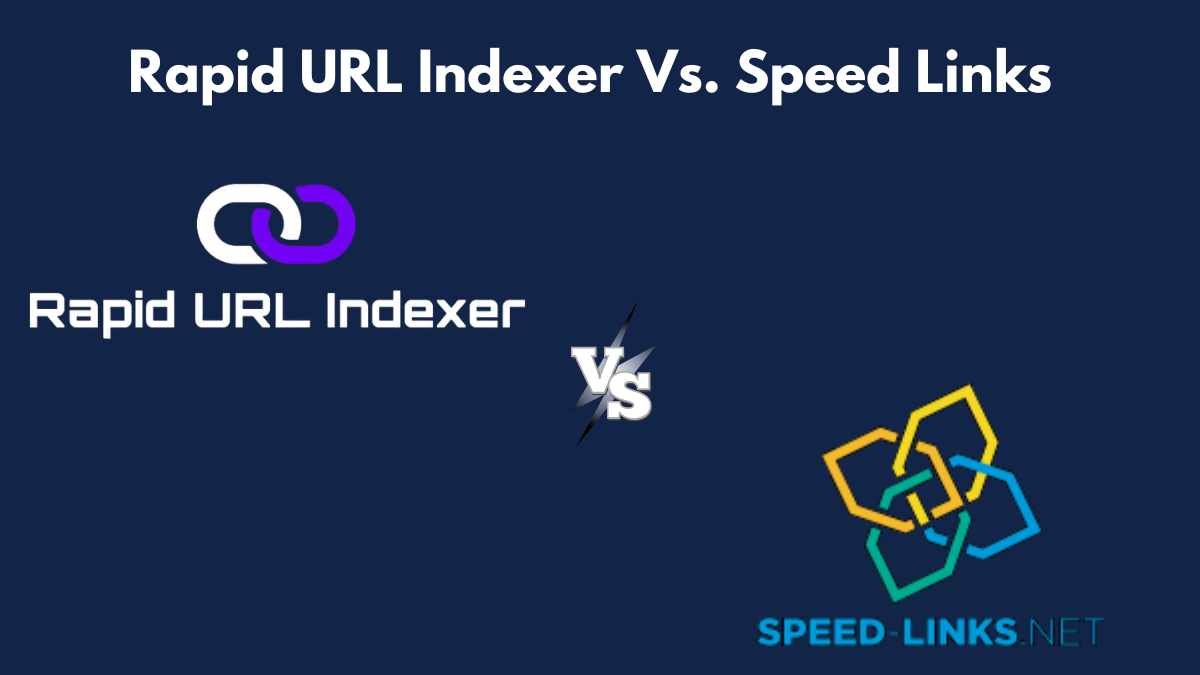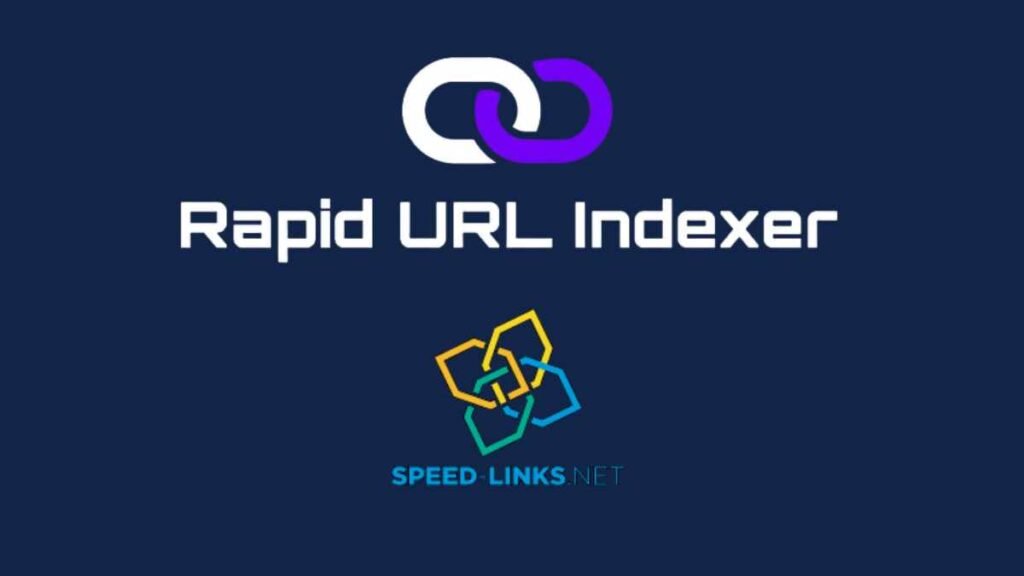
In the fast-paced world of SEO, ensuring that your website’s URLs are indexed quickly and efficiently can make a huge difference in search rankings. URL indexing tools are pivotal in helping SEO professionals achieve faster visibility in search engine results.
Two prominent tools in the market are Rapid URL Indexer and Speed Links. Both offer unique features and benefits, but which is better for your SEO needs?
This article will compare Rapid URL Indexer vs. Speed Links regarding their performance, features, and potential limitations, helping you make an informed decision.
What Is URL Indexing, and Why Is It Important?
URL indexing is how search engines like Google add web pages to their search results. Without proper indexing, your web pages won’t appear in search results, meaning no organic traffic can reach them.
For SEO professionals, ensuring that URLs are indexed quickly is crucial for improving website visibility and driving traffic. This is particularly important when launching new pages, publishing fresh content, or building backlinks.
While search engines will eventually crawl and index pages independently, using a URL indexing service like Rapid URL Indexer or Speed Links can speed up the process, giving your content an edge in competitive markets.
Read Also: What Is Rapid URL Indexer?
Rapid URL Indexer Vs. Speed Links – Overview

Rapid URL Indexer
Rapid URL Indexer is known for its efficiency and user-friendly design. It offers a 91% average indexing rate and operates on a pay-as-you-go model, ensuring you only pay for successful results.
Key features include a WordPress plugin for easy content submission, a RESTful API for integration into SEO workflows, and detailed reports with CSV exports.
Its credit refund policy ensures that users don’t lose out if URLs fail to be indexed, making it a reliable option for SEO professionals.
Speed Links
Speed Links offers a bulk submission feature, ideal for websites requiring the indexing of large numbers of URLs. However, it comes with a few limitations, such as no indexing guarantee and a subscription-based pricing model.
Although Speed Links allows for daily submissions and is competitively priced for high-volume users, its slower turnaround time of 20-30 days for results can be a disadvantage compared to Rapid URL Indexer’s faster indexing.
Rapid URL Indexer Vs. Speed Links – Key Benefits
Rapid URL Indexer
- High Indexing Success Rate
With an average success rate of 91%, Rapid URL Indexer is one of the most reliable options available.
- Faster Results
Indexing results typically appear within 4-14 days, significantly faster than competing services.
- Cost-Effective
Its pay-as-you-go model allows users to control spending, and the refund policy for unindexed URLs ensures that resources are not wasted.
- User-Friendly Features
The platform offers a simple dashboard, detailed reporting tools, and easy integration with SEO tools like Google Search Console.
- Integration Options
A RESTful API and WordPress plugin provide flexible integration options for developers and SEO professionals.
Speed Links
- Bulk Submission Capabilities
Speed Links is ideal for submitting large URLs, particularly for larger websites or platforms that publish new content daily.
- Competitive Pricing
Subscription plans are reasonably priced for high-volume users, though they may not offer the same flexibility as pay-as-you-go services.
- Daily Submissions
The ability to submit URLs daily can be beneficial for websites that frequently update content.
Step-By-Step Process For Using Each Tool
Rapid URL Indexer
- Purchase Credits
Start by purchasing the number of credits you need.
- Submit URLs
Enter the URLs you want indexed into the platform manually or via the API/WordPress plugin.
- Monitor Progress
The system will begin the indexing process, with results visible in 4-14 days.
- Review Reports
Detailed reports allow you to track the success of your submissions, and CSV downloads are available for easy record-keeping.
- Refunds
If any URLs fail to index, you’ll receive credit refunds, minimizing risk.
Speed Links
- Choose a Subscription Plan
Select the subscription tier that fits your needs.
- Submit URLs
Add URLs for indexing manually or via their bulk submission feature.
- Wait for Indexing
The results take 20-30 days to appear.
- Review Results
The platform provides basic feedback on the status of indexed URLs but lacks detailed reporting.
- No Refunds
If URLs aren’t indexed, there is no refund policy.
Read Also: How Does Rapid URL Indexer Work?
Rapid URL Indexer Vs. Speed Links – Performance
| Feature | Rapid URL Indexer | Speed Links |
|---|
| Indexing Success Rate | 91% | No guarantee of success |
| Indexing Timeframe | 4-14 days | 20-30 days |
| Pricing Model | Pay-as-you-go, refunds for unindexed URLs | Subscription-based, no refunds |
| API Integration | Full RESTful API, well-documented | Basic API, limited information |
| Reports and Feedback | Detailed reports, CSV downloads | Basic reporting |
| Refund Policy | Yes, for unindexed URLs | No refunds |
Potential Drawbacks and Limitations
Rapid URL Indexer
- Credit System
The pay-as-you-go model might be restrictive for users with extremely tight budgets, though the refund policy offsets this risk.
- No 100% Guarantee
Although it boasts a 91% success rate, there’s still a small percentage of URLs that may not be indexed.
- Learning Curve
New users might require some time to fully understand all of its features.
Speed Links
- Risks of Rapid Indexing
Speed Links warns that too many links indexed in a short period could be harmful, raising potential spam flags with search engines.
- No Indexing Guarantee
Unlike Rapid URL Indexer, Speed Links doesn’t offer a guaranteed indexing success rate.
- Subscription Risks
The subscription model may not match the needs of users whose indexing requirements fluctuate, potentially leading to wasted resources.
API Capabilities and Integration With SEO Tools
Rapid URL Indexer
Rapid URL Indexer offers a highly flexible RESTful API, which allows for seamless integration with various platforms and programming languages. Its well-documented API makes it easy for developers and SEO professionals to automate submissions and track indexing progress.
The WordPress plugin further enhances its utility for content-heavy websites, enabling automatic submission of new and updated URLs directly from the dashboard.
Speed Links
While Speed Links does offer API access, there is limited public information on its functionality and documentation.
This makes it less appealing for users looking for comprehensive integration into their SEO workflows.
Read Also:
Why Rapid URL Indexer Is The Clear Winner?
After a comprehensive comparison of Rapid URL Indexer vs. Speed Links, it’s evident that Rapid URL Indexer is the superior choice for most SEO professionals.
Rapid URL Indexer offers a more reliable and cost-effective solution with its higher indexing success rate, faster results, and pay-as-you-go pricing model.
Its user-friendly features, such as a WordPress plugin and RESTful API, make integrating it into existing SEO workflows easier, while the refund policy provides peace of mind.
Rapid URL Indexer is the clear winner for those looking for a fast, efficient, and risk-free URL indexing service.
Read Also: Local SEO Rapid URL Indexer
Conclusion – Rapid URL Indexer Vs. Speed Links
In comparing Rapid URL Indexer vs. Speed Links, it’s clear that Rapid URL Indexer provides better performance, flexibility, and value for SEO professionals.
With faster indexing times, a higher success rate, and more robust integration options, Rapid URL Indexer stands out as the best choice for ensuring that your URLs are indexed quickly and efficiently.
Rapid URL Indexer is the tool you should consider if you’re looking for a reliable URL indexing service to boost your site’s visibility and rankings.